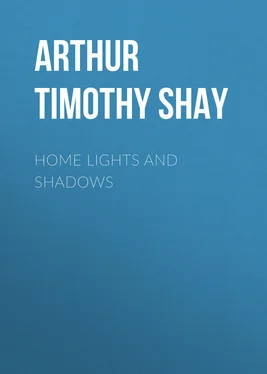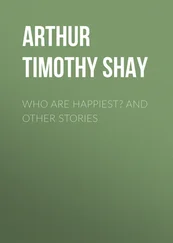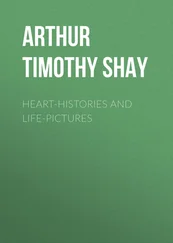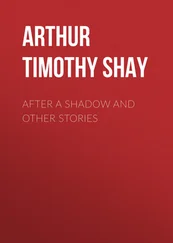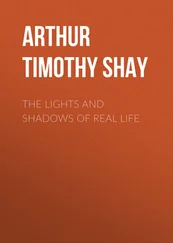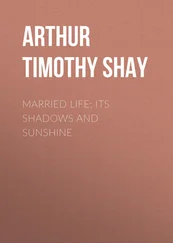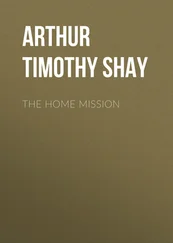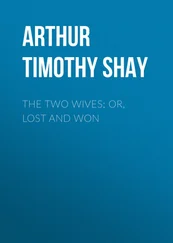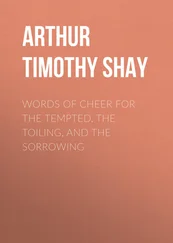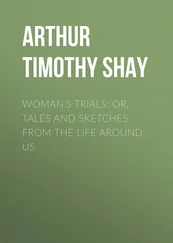Timothy Arthur - Home Lights and Shadows
Здесь есть возможность читать онлайн «Timothy Arthur - Home Lights and Shadows» — ознакомительный отрывок электронной книги совершенно бесплатно, а после прочтения отрывка купить полную версию. В некоторых случаях можно слушать аудио, скачать через торрент в формате fb2 и присутствует краткое содержание. Жанр: foreign_sf, literature_19, foreign_antique, foreign_prose, на английском языке. Описание произведения, (предисловие) а так же отзывы посетителей доступны на портале библиотеки ЛибКат.
- Название:Home Lights and Shadows
- Автор:
- Жанр:
- Год:неизвестен
- ISBN:нет данных
- Рейтинг книги:4 / 5. Голосов: 1
-
Избранное:Добавить в избранное
- Отзывы:
-
Ваша оценка:
- 80
- 1
- 2
- 3
- 4
- 5
Home Lights and Shadows: краткое содержание, описание и аннотация
Предлагаем к чтению аннотацию, описание, краткое содержание или предисловие (зависит от того, что написал сам автор книги «Home Lights and Shadows»). Если вы не нашли необходимую информацию о книге — напишите в комментариях, мы постараемся отыскать её.
Home Lights and Shadows — читать онлайн ознакомительный отрывок
Ниже представлен текст книги, разбитый по страницам. Система сохранения места последней прочитанной страницы, позволяет с удобством читать онлайн бесплатно книгу «Home Lights and Shadows», без необходимости каждый раз заново искать на чём Вы остановились. Поставьте закладку, и сможете в любой момент перейти на страницу, на которой закончили чтение.
Интервал:
Закладка:
"I do not wish to see you a mere household drudge," he said to her one day, a few weeks after the change just noted. "You know so well how every thing ought to be done, that the office of director alone should be yours. I think there is a brighter day coming for us. I hope so. From the first of next month, my salary is to be increased to a thousand dollars. Then we will move from this poor place, into a better home."
There was a blending of hopefulness and tenderness in the voice of Mr. Uhler, that touched his wife deeply. Overcome by her feelings, she laid her face upon his bosom, and wept.
"Whether the day be brighter or darker," she said, when she could speak calmly, "God helping me, I will be to you a true wife, Herman. If there be clouds and storms without, the hearth shall only burn the brighter for you within. Forgive me for the past, dear husband! and have faith in me for the future. You shall not be disappointed."
And he was not. Mrs. Uhler had discovered her true relation, and had become conscious of her true duties. She was no longer jealous of her own rights, and therefore never trespassed on the rights of her husband.
The rapidity with which Mr. Uhler rose to his old position in business, sometimes caused a feeling of wonder to pervade the mind of his wife. From a clerk of one thousand, he soon came into the receipt of two thousand a year, then rose to be a partner in the business, and in a singularly short period was a man of wealth. Mrs. Uhler was puzzled, sometimes, at this, and so were other people. It was even hinted, that he had never been as poor as was pretended. Be that as it may, as he never afterwards trusted important matters to the discretion of irresponsible clerks, his business operations went on prosperously; and, on the other hand, as Mrs. Uhler never again left the comfort and health of her family entirely in the hands of ignorant and careless domestics, the home of her husband was the pleasantest place in the world for him, and his wife, not a mere upper servant, but a loving and intelligent companion, whom he cared for and cherished with the utmost tenderness.
THE HUMBLED PHARISEE
"WHAT was that?" exclaimed Mrs. Andrews, to the lady who was seated next to her, as a single strain of music vibrated for a few moments on the atmosphere.
"A violin, I suppose," was answered.
"A violin!" An expression almost of horror came into the countenance of Mrs. Andrews. "It can't be possible."
It was possible, however, for the sound came again, prolonged and varied.
"What does it mean?" asked Mrs. Andrews, looking troubled, and moving uneasily in her chair.
"Cotillions, I presume," was answered, carelessly.
"Not dancing, surely!"
But, even as Mrs. Andrews said this, a man entered, carrying in his hand a violin. There was an instant movement on the part of several younger members of the company; partners were chosen, and ere Mrs. Andrews had time to collect her suddenly bewildered thoughts, the music had struck up, and the dancers were in motion.
"I can't remain here. It's an outrage!" said Mrs. Andrews, making a motion to rise.
The lady by whom she was sitting comprehended now more clearly her state of mind, and laying a hand on her arm, gently restrained her.
"Why not remain? What is an outrage, Mrs. Andrews?" she asked.
"Mrs. Burdick knew very well that I was a member of the church." The lady's manner was indignant.
"All your friends know that, Mrs. Andrews," replied the other. A third person might have detected in her tones a lurking sarcasm. But this was not perceived by the individual addressed. "But what is wrong?"
"Wrong! Isn't that wrong?" And she glanced towards the mazy wreath of human figures already circling on the floor. "I could not have believed it of Mrs. Burdick; she knew that I was a professor of religion."
"She doesn't expect you to dance, Mrs. Andrews," said the lady.
"But she expects me to countenance the sin and folly by my presence."
"Sin and folly are strong terms, Mrs. Andrews."
"I know they are, and I use them advisedly. I hold it a sin to dance."
"I know wise and good people who hold a different opinion."
"Wise and good!" Mrs. Andrews spoke with strong disgust. "I wouldn't give much for their wisdom and goodness—not I!"
"The true qualities of men and women are best seen at home. When people go abroad, they generally change their attire—mental as well as bodily. Now, I have seen the home-life of certain ladies, who do not think it sin to dance, and it was full of the heart's warm sunshine; and I have seen the home-life of certain ladies who hold dancing to be sinful, and I have said to myself, half shudderingly: "What child can breathe that atmosphere for years, and not grow up with a clouded spirit, and a fountain of bitterness in the heart!"
"And so you mean to say," Mrs. Andrews spoke with some asperity of manner, "that dancing makes people better?—Is, in fact, a means of grace?"
"No. I say no such thing."
"Then what do you mean to say? I draw the only conclusion I can make."
"One may grow better or worse from dancing," said the lady. "All will depend on the spirit in which the recreation is indulged. In itself the act is innocent."
Mrs. Andrews shook her head.
"In what does its sin consist?"
"It is an idle waste of time."
"Can you say nothing worse of it?"
"I could, but delicacy keeps me silent."
"Did you ever dance?"
"Me? What a question! No!"
"I have danced often. And, let me say, that your inference on the score of indelicacy is altogether an assumption."
"Why everybody admits that."
"Not by any means."
"If the descriptions of some of the midnight balls and assemblies that I have heard, of the waltzing, and all that, be true, then nothing could be more indelicate,—nothing more injurious to the young and innocent."
"All good things become evil in their perversions," said the lady. "And I will readily agree with you, that dancing is perverted, and its use, as a means of social recreation, most sadly changed into what is injurious. The same may be said of church going."
"You shock me," said Mrs. Andrews. "Excuse me, but you are profane."
"I trust not. For true religion—for the holy things of the church—I trust that I have the most profound reverence. But let me prove what I say, that even church going may become evil."
"I am all attention," said the incredulous Mrs. Andrews.
"You can bear plain speaking."
"Me!" The church member looked surprised.
"Yes, you."
"Certainly I can. But why do you ask?"
"To put you on your guard,—nothing more."
"Don't fear but what I can bear all the plain speaking you may venture upon. As to church going being evil, I am ready to prove the negative against any allegations you can advance. So speak on."
After a slight pause, to collect her thoughts, the lady said:
"There has been a protracted meeting in Mr. B–'s church."
"I know it. And a blessed time it was."
"You attended?"
"Yes, every day; and greatly was my soul refreshed and strengthened."
"Did you see Mrs. Eldridge there?"
"Mrs. Eldridge? No indeed, except on Sunday. She's too worldly-minded for that."
"She has a pew in your church."
"Yes; and comes every Sunday morning because it is fashionable and respectable to go to church. As for her religion, it isn't worth much and will hardly stand her at the last day."
"Why Mrs. Andrews! You shock me! Have you seen into her heart? Do you know her purposes? Judge not, that ye be not judged, is the divine injunction."
"A tree is known by its fruit," said Mrs. Andrews, who felt the rebuke, and slightly colored.
"True; and by their fruits shall ye know them," replied the lady. "But come, there are too many around us here for this earnest conversation. We will take a quarter of an hour to ourselves in one of the less crowded rooms. No one will observe our absence, and you will be freed from the annoyance of these dancers."
Читать дальшеИнтервал:
Закладка:
Похожие книги на «Home Lights and Shadows»
Представляем Вашему вниманию похожие книги на «Home Lights and Shadows» списком для выбора. Мы отобрали схожую по названию и смыслу литературу в надежде предоставить читателям больше вариантов отыскать новые, интересные, ещё непрочитанные произведения.
Обсуждение, отзывы о книге «Home Lights and Shadows» и просто собственные мнения читателей. Оставьте ваши комментарии, напишите, что Вы думаете о произведении, его смысле или главных героях. Укажите что конкретно понравилось, а что нет, и почему Вы так считаете.
